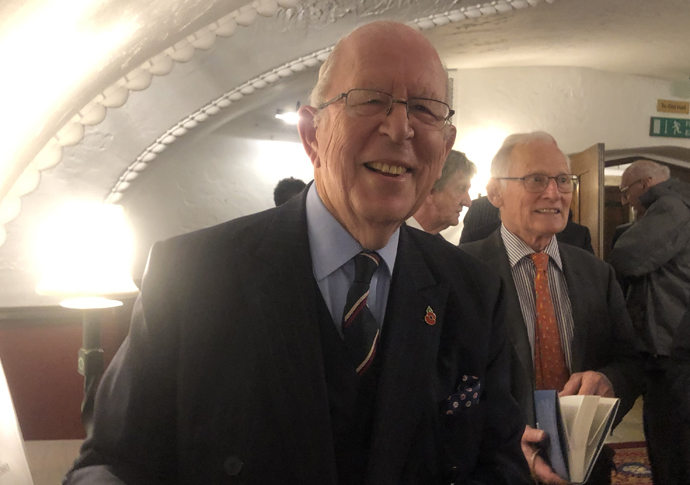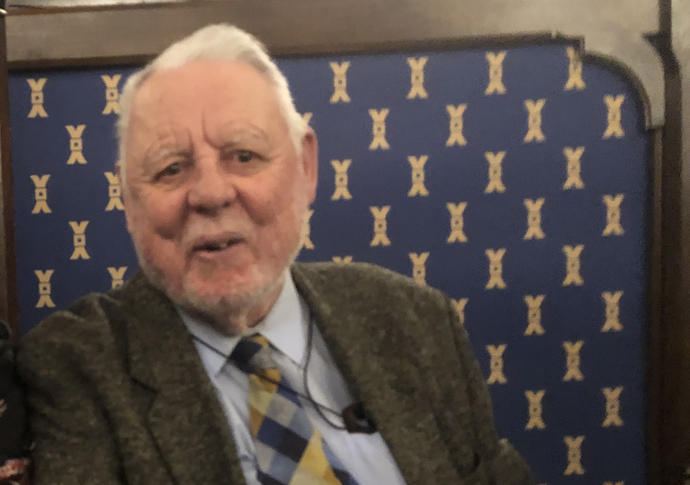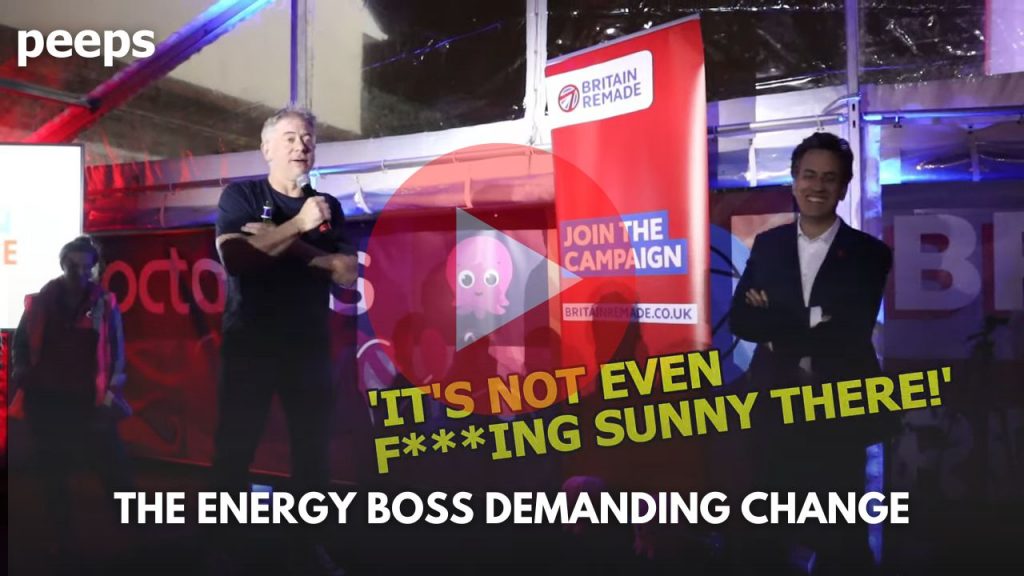Sir Terry Waite and the judge on mentoring and monitoring
‘It is not right to incarcerate people and leave them in a state of despair’
Friday, 8th November 2024 — By Dan Carrier

His Honour John Samuels KC
WATCH OUR ONLINE POLITICS CHANNEL, PEEPS, ON YOUTUBE
THE United Kingdom’s soaring prison population – up from around 40,000 in 1999 to heading past 100,000 today – has created a criminal justice system not fit for purpose, and building more prisons will only make it worse, Sir Terry Waite has said.
The prison reform campaigner, who was held hostage by Hezbollah terrorists for five years, was talking at the launch of the autobiography by His Honour John Samuels KC this week.
The retired judge led groundbreaking work in mentoring prisoners: after a career at the bar and on the bench which began in 1964, John Samuels decided that the mentoring role he performed for young lawyers in his chambers could be adapted and applied to those he had sent to prison.
It was through this work of building a long-term relationship with someone he had sentenced that has led him to prove there are better ways to curb the expansion of the prison system, and it is based on the common sense ideal of properly rehabilitating offenders.
John Samuels, whose 42-year legal career has seen him work on why people reoffend, how society approaches criminal justice, and to act to tackle the plethora of issues prisoners face.
And his impact on prisoners is marked.
When he held his last class at Coldingley Prison just outside Woking, earlier this year, prisoners threw a surprise thank-you party for him.
At the launch at the Honourable Society of Lincoln’s Inn, Sir Terry explained how he was released in 1991 after five years and how today he befriends long-term prisoners
He said: “I had been a hostage negotiator. I had met and negotiated with Gaddafi, with Hezbollah, the usual crew.
“For five years I was kept in very strict solitary confinement.
“I had to understand, day by day, I could be killed. Conditions were very severe. A constantly dark room. Chained to a wall. No books, little food, no nothing.
“I was completely cut off from the outside world and cut off from all relationships with any other person.”

Sir Terry Waite
These five hellish years have given Sir Terry a unique insight into how prison can affect the mind.
He said: “I was fortunate in many respects and in one way in particular.
“Throughout my life I have always been a reader and been encouraged to use my imagination, and in captivity, that is all I had, all I had through those years of captivity. I had nothing else.”
He used this to make those endless days feel less oppressive.
He added: “So I began to write in my head.
“My first book was completely written in that way. I was very fortunate, if you compare my situation to the majority of prisoners incarcerated for various periods of time.
“Many have a limited educational background. They may have an issue with mental health or perhaps a personality disorder. It is not right to incarcerate people and leave them in a state of despair.”
Sir Terry is now calling on the government to stop knee-jerk reactions to tabloid newspaper demands and look at fundamental and holistic reform to bring down reoffending rates and help prisoners to build new lives away from criminal activity.
He said: “This evening I was talking to a young man who was in prison for 14 years and had just been released on licence.
“Myself and John worked with him for 14 years and he earned three degrees inside. Not everyone has academic abilities, but plenty of others.
“Look at the work produced by the Koestler Trust each year, prisoners able to utilise their skills in art, sculpture, writing.
“The problem really lies in government legislation. It is often said there is no hope in prison, and politicians succumb to the demands of the tabloid press, with descriptions of the criminal justice system that are frankly ridiculous, for example, banning books.
“What good could that possibly do?
“There are many other examples of such silly ideas.”
And he said John Samuels’s work as a mentor had brought tangible results, illustrated by some of the former prisoners at the book launch who had come to say thank you.
Sir Terry added: “There is tremendous value, as John has proven, for a judge to take this interest, but it is a question of time and resources.
“There are no votes in prisons.
“It is a question of whether the government is willing or not to really put their backs into rehabilitation and make it possible for people to do this important work.
“We have to make ministers recognise that the policy of simply building more prisons and filling them with more people does not work.”
• Mentor and Monitor: A Role for the Judge, by His Honour John Samuels KC, hardback, is available from Whitefox Publishing at £20
